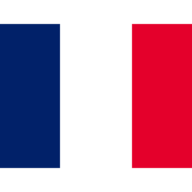
May 14, 2023
как повлиял рене коти на футбол во франции
I conducted research on the influence of René Coty on football in France by examining two sources: an article from World Soccer about the significance of World War I on French football, and the history of the France national football team on Wikipedia. Neither source directly discusses René Coty, but they provide valuable context on the development of football in France during the early 20th century. Due to the lack of direct information on René Coty's influence, my response is focused on the broader context of football in France during that time period.
Words
392
Time
6m 14s
Contributors
154
Words read
42.6k
Have an opinion? Send us proposed edits/additions and we may incorporate them into this article with credit.
World War I and French Football
The France National Football Team
Jump to top
Research
 "https://www.worldsoccer.com/world-soccer-latest/football-france-significance-world-war-1-358236"
"https://www.worldsoccer.com/world-soccer-latest/football-france-significance-world-war-1-358236"
- The victory of Didier Deschamps in World Cup 1998 in football is talked about.
- France’s assimilation of immigrants into football is mentioned.
- The French football academy system and players’ preparedness to play abroad are appreciated.
- Football’s history in France that led to its development is discussed.
- Before World War I, football had been struggling, with very low exposure, investment, or organization.
- British troops and officers during WWI played an important role in introducing games like Association Football to their French allies and this made football popular in France.
- Formal football tournaments were organized after British and French troops started playing it in the war time which involved teams of both countries challenging each other in tournaments like “Entente Cordiale Cup” and later “Coupe des Alliées”.
- France started their organized competition before the end of World War I and the French Cup took place in May 1918.
- The French Football Federation was set up in the following year, and the first national Championship was held in 1920.
- Jules Rimet who was an army officer during World War I became the head of FIFA in 1921 and he was the key figure in the development of the first-ever World Cup, nine years later.
- The significance of the First World War, its impact on France, and development of French football is highlighted.
- The French army was influenced by the British troops and officers for playing football and understanding its importance in maintaining fitness, discipline, and morale.
- Football helped soldiers in getting temporary relief from the terrors of war and also kept them away from alcohol and prostitution.
- The northern regions of France lived with the trauma and the legacy of World War I for decades, and even today, the cemeteries and replica souvenirs remind everyone of the tragic past.
- Football was introduced into France in the 1870s by English travelers from the upper class but it wasn’t embraced by many due to the sport’s association with the bourgeoisie and catholic right.
- Football in France was predominantly a sport played by landed gentry and was so unpopular that the first international match between France and England was won by England 15-0.
- France’s exposure to football was limited as it was a predominantly agricultural country, heavily regionalized, with little dissemination of national news or new trends and people worked long hours on the land.
- The country’s limited exposure to leisure and sport meant cycling became France’s most popular sport in the areas of higher exposure to sport, relatively speaking
 "FM 22 - How to be the manager of your team and your international team at the same time?"
"FM 22 - How to be the manager of your team and your international team at the same time?"
Not used in article
 "Football in France - Statistics & Facts | Statista"
"Football in France - Statistics & Facts | Statista"
Not used in article
 "René Coty | Military Wiki | Fandom"
"René Coty | Military Wiki | Fandom"
Not used in article
 "René Coty - Simple English Wikipedia, the free encyclopedia"
"René Coty - Simple English Wikipedia, the free encyclopedia"
Not used in article
 "René Coty | Élysée"
"René Coty | Élysée"
Not used in article
 "René Coty - Oxford Reference"
"René Coty - Oxford Reference"
Not used in article
 "René Coty | president of France | Britannica"
"René Coty | president of France | Britannica"
Not used in article
 "https://en.wikipedia.org/wiki/History_of_the_France_national_football_team"
"https://en.wikipedia.org/wiki/History_of_the_France_national_football_team"
- The France national football team’s history dates back to 1904. France is represented by Les Bleus in international football, fielded by the French Football Federation, and competes as a member of UEFA.
- The USFSA formed a national team composed of players from French clubs that finished second in the 1900 Olympics under the name of USFSA XI or Club Français.
- Before FIFA’s creation, France contested international matches under the Union des Sociétés Françaises de Sports Athlétiques (USFSA), the now-defunct French sports union.
- France’s first ever football game was held on May 1st, 1904, in a match against Belgium that ended in a 3–3 draw.
- The national team played their first home match on February 12, 1905, against Switzerland, at the Parc des Princes in front of 500 supporters. France won 1-0.
- France lost six consecutive matches in 1923, including a 1–2 defeat by Spain and a 1–9 thrashing from the Netherlands in Amsterdam. The winless streak ended on 13 January 1924 with a 2–0 victory over Belgium in Paris.
- France played in their first World Cup in July 1930 in Uruguay. France was the only group with four teams, along with Argentina, Mexico, and Chile.
- In 1938, France hosted the World Cup but lost to defending champions Italy in the quarter-finals, who later went on to defend their title by defeating Hungary 4–2 in the final.
- National team play was suspended due to World War II. The first suspension of play lasted from 29 January 1940, following France’s 3–2 victory over Portugal, until 8 March 1942 when France returned to play, losing 0–2 to Switzerland.
- The 1950s saw the arrival of Just Fontaine, Raymond Kopa, Jean Vincent, Robert Jonquet, Maryan Wisnieski, Thadée Cisowski, and Armand Penverne to the national team.
- France went on a six-match unbeaten streak beginning on 20 April 1952 following a 2–0 victory over Portugal.
- France defeated the likes of Germany, Spain, England, and Sweden during an eight-match unbeaten streak after the 1954 World Cup.
- France managed to finish third in the 1958 World Cup held in
 "<b>Developing football in France</b> | Inside UEFA | <b>UEFA.com</b>"
"<b>Developing football in France</b> | Inside UEFA | <b>UEFA.com</b>"
Not used in article
 "Football | History, Rules, & Significant Players | Britannica"
"Football | History, Rules, & Significant Players | Britannica"
Not used in article
 "Football in France - Wikipedia"
"Football in France - Wikipedia"
Not used in article
 "<b>Football</b> in France: A Cultural <b>History</b> - Geoff Hare - Google Books"
"<b>Football</b> in France: A Cultural <b>History</b> - Geoff Hare - Google Books"
Not used in article
 "How did the French become the dominant competitors in the increasingly global wine industry for centuries?"
"How did the French become the dominant competitors in the increasingly global wine industry for centuries?"
Not used in article
 "Why is the French revolution considered such an important World event? Rather than just a localised revolution."
"Why is the French revolution considered such an important World event? Rather than just a localised revolution."
Not used in article
 "How did association football became the world dominating sport?"
"How did association football became the world dominating sport?"
Not used in article
 "Historical Changes in Europe Across the Twentieth Century"
"Historical Changes in Europe Across the Twentieth Century"
Not used in article
 "French literature - The mid-20th century | Britannica"
"French literature - The mid-20th century | Britannica"
Not used in article
 "What is special about French football fan culture? Researching all 32 FIFA World Cup Teams of 2018. France it’s your turn!"
"What is special about French football fan culture? Researching all 32 FIFA World Cup Teams of 2018. France it’s your turn!"
Not used in article
 "How France detects and produces young football players year after year"
"How France detects and produces young football players year after year"
Not used in article
 "Early 20th century football compared to modern football"
"Early 20th century football compared to modern football"
Not used in article
 "Why did soccer never rise to the level of popularity like American Football and Baseball did in early 20th century USA?"
"Why did soccer never rise to the level of popularity like American Football and Baseball did in early 20th century USA?"
Not used in article
 "France - Universal Suffrage, Small Producers, and Laissez-Faire Policy"
"France - Universal Suffrage, Small Producers, and Laissez-Faire Policy"
Not used in article
 "French president René Coty, a great man, he will mark history"
"French president René Coty, a great man, he will mark history"
Not used in article
 "<b>French Players and Migration</b> – Soccer Politics / The Politics <b>of Football</b>"
"<b>French Players and Migration</b> – Soccer Politics / The Politics <b>of Football</b>"
Not used in article
 "René Coty - Wikipedia"
"René Coty - Wikipedia"
Not used in article
💭 Looking into
Comparison of football in France before and after René Coty's tenure
💭 Looking into
Key changes to French football made during René Coty's tenure
